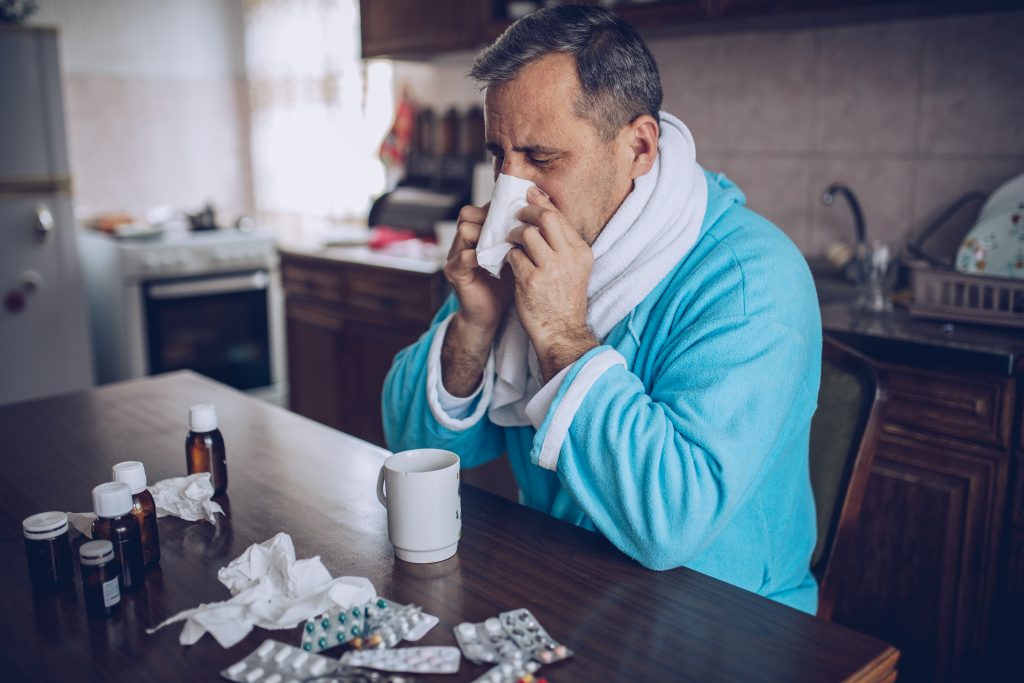October 5, 2020
Facts About the Flu Vaccine
Landmark Pharmacist Jill Logel answers commonly asked questions about the flu.
Influenza is a serious disease (illness or virus). Every year, hundreds of thousands of people are hospitalized due to the flu, and thousands die from the flu. The very young and the very old are at an increased risk but people of any age can get very sick from the flu.

Getting a flu vaccine is the best way to reduce your risk of getting the flu and to prevent you from spreading the flu.
Commonly asked questions and answers about flu vaccines:
- Can the flu shot give me the flu? No, a flu shot cannot cause the flu. Some individuals report having mild side effects from the flu vaccine, including low-grade fever, headache and muscle aches that can last one to two days after the vaccination.
- Who should get the flu shot? Anyone more than six months of age should get the flu shot. The only people who cannot get the flu shot are people younger than six months old, or those who have had a serious reaction to the vaccine or components in the vaccine. Anyone who has an egg allergy of any severity should still receive a licensed and recommended flu vaccine. A previous, severe allergic reaction to the flu vaccine is a contraindication for future vaccination. Ask your pharmacist or doctor for more information.
- What type of flu shot should I get? The Center for Disease Control and Prevention does not recommend any brand or type over another as long as it is age appropriate. It is most important to just get a flu shot.
- Do I really need a flu shot every year? Yes, the flu viruses change constantly, and new vaccines come out every year to keep up with those changes. Also, your immunity goes down over time and you may not be adequately protected if you do not get a flu shot every year.
- Should I wait to get my flu shot so that my immunity lasts through the end of the season? The CDC recommends that people get a flu shot in September or October, but later may still provide benefit. It takes about two weeks after your vaccination for your body to be able to protect against a flu virus infection, so it is best to get vaccinated before the flu virus begins spreading in your community.
- Should I wait to get vaccinated if I have COVID-19? For those patients with suspected or confirmed COVID-19, a delay in the vaccine should be considered until the patient is no longer acutely ill.
For more information on similarities and differences between Flu and COVID-19, please click here.




